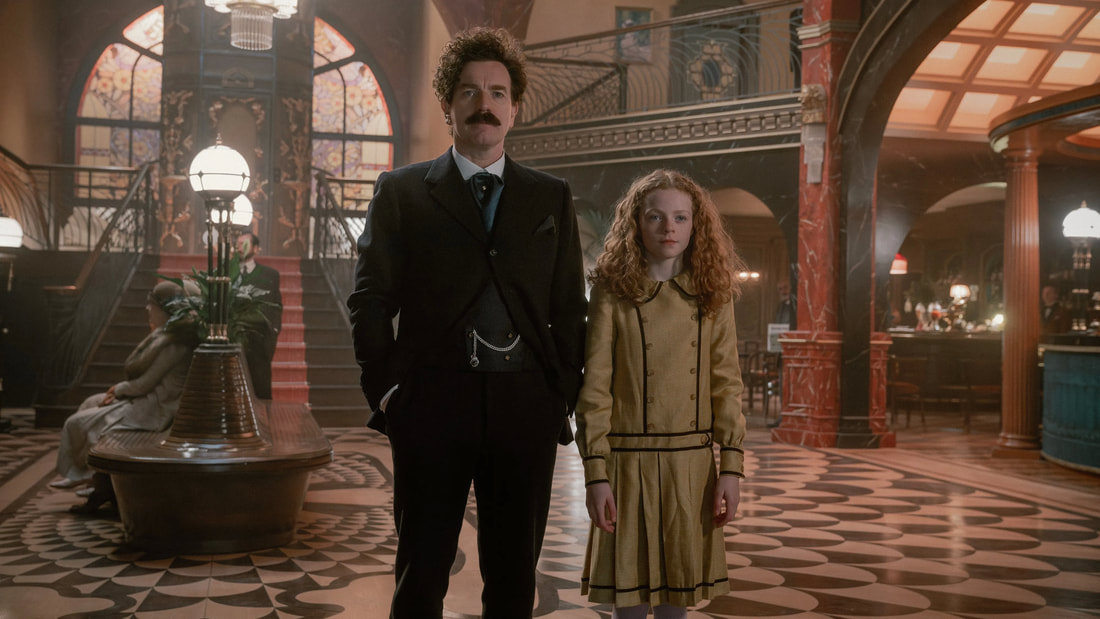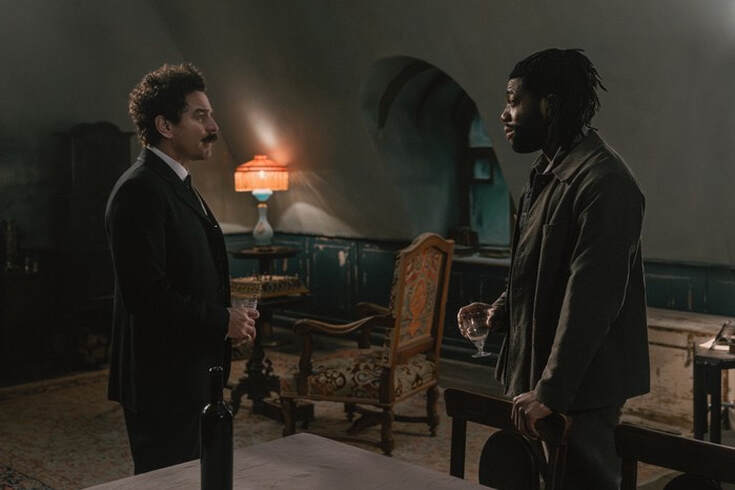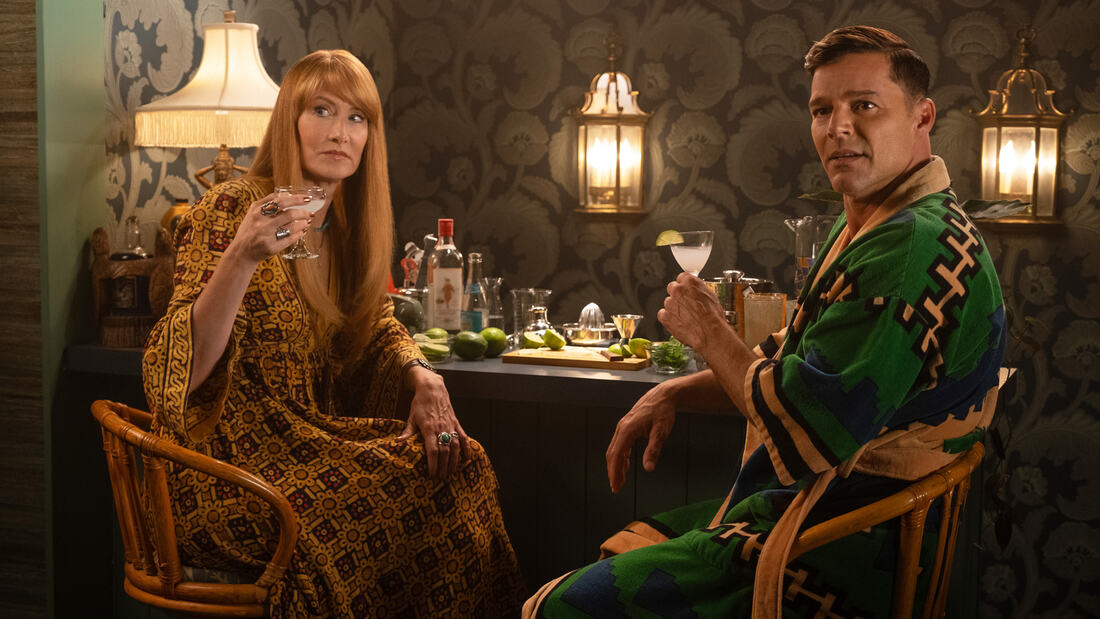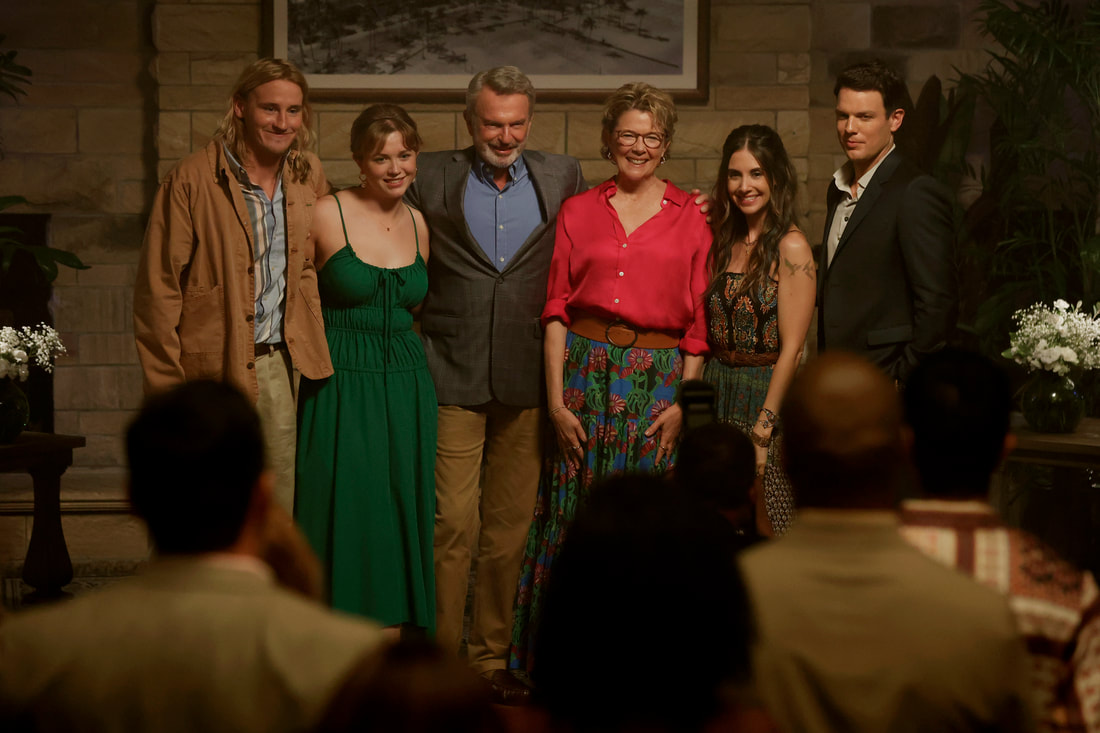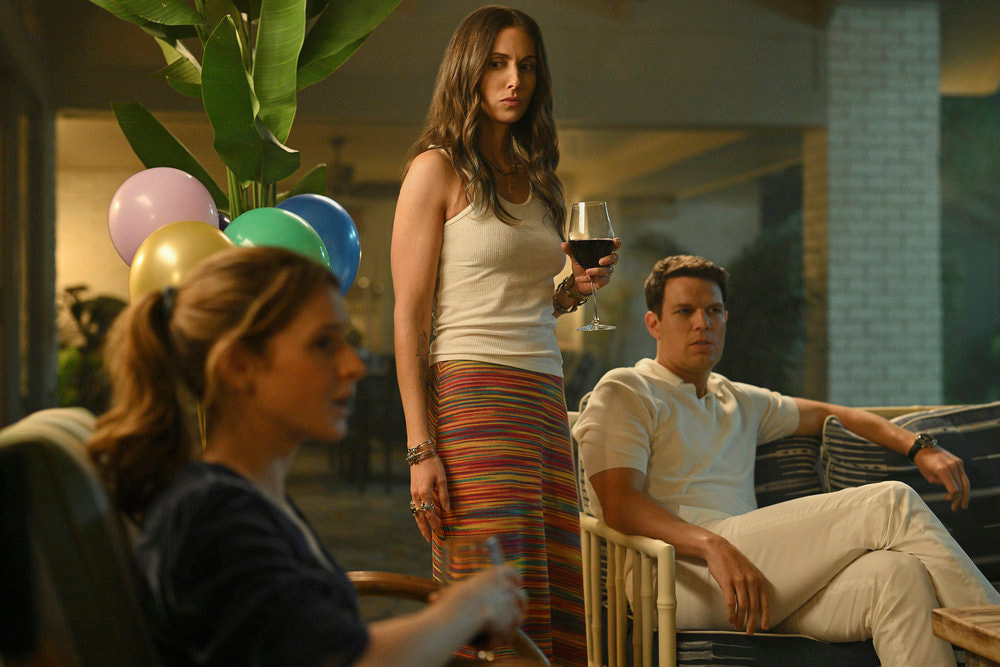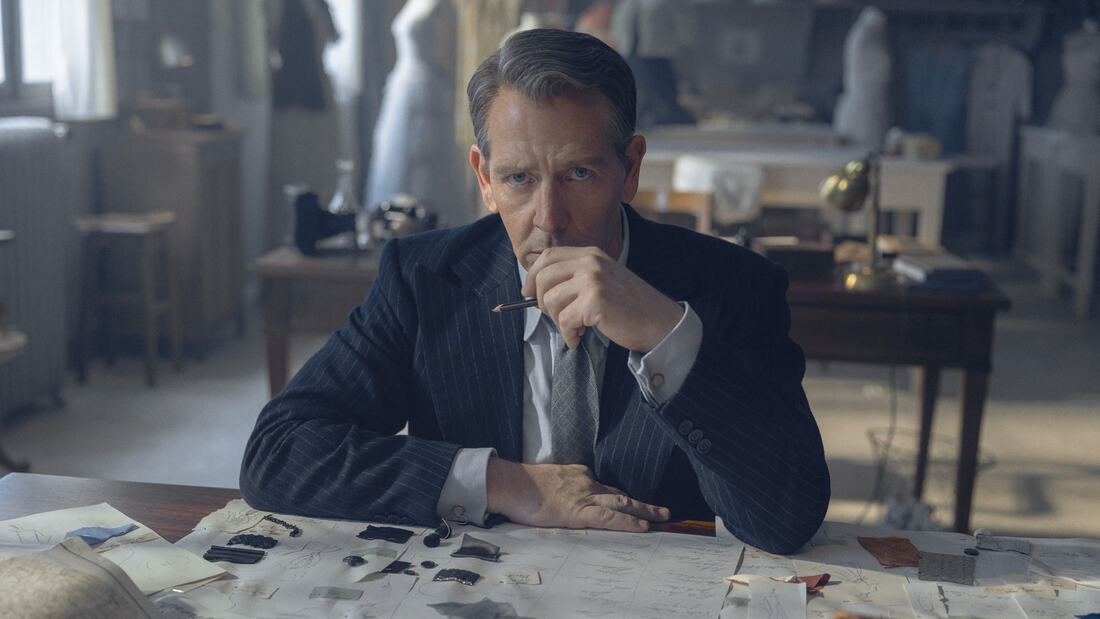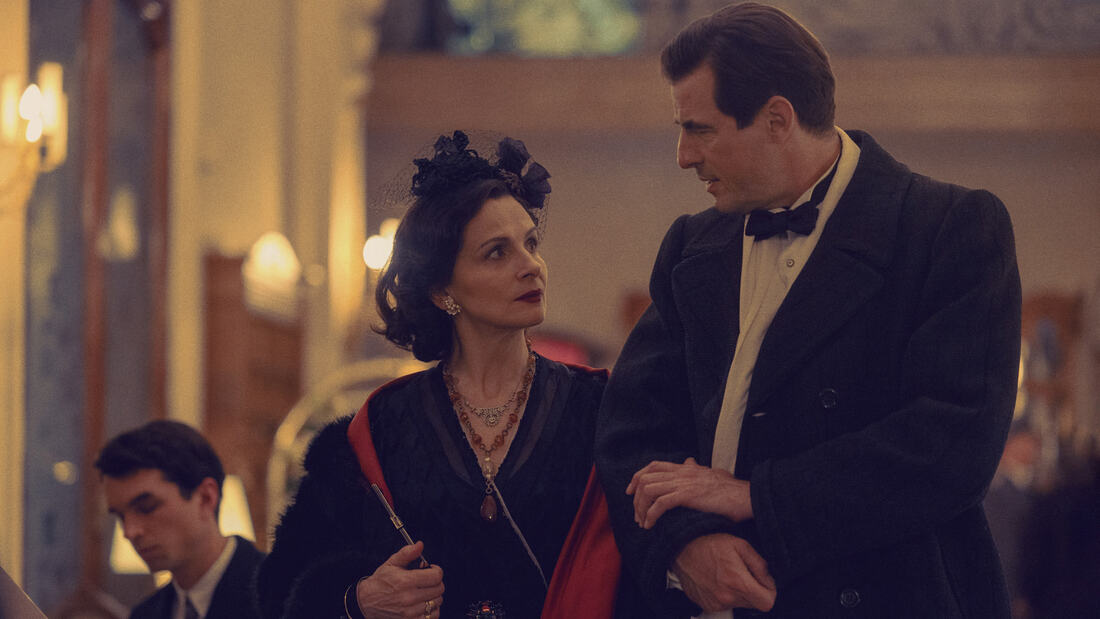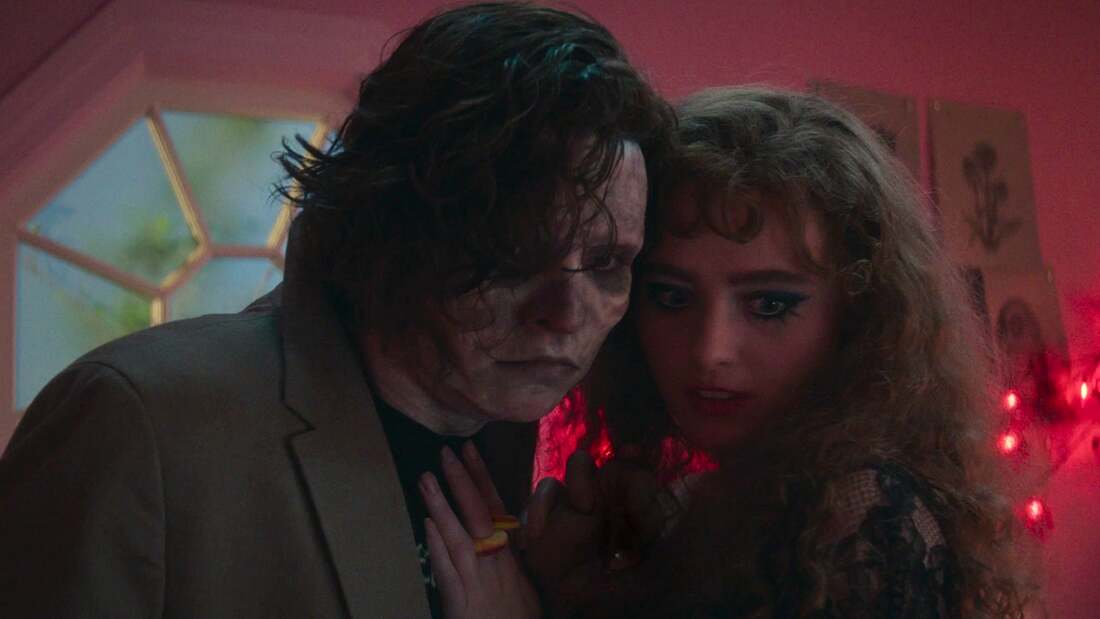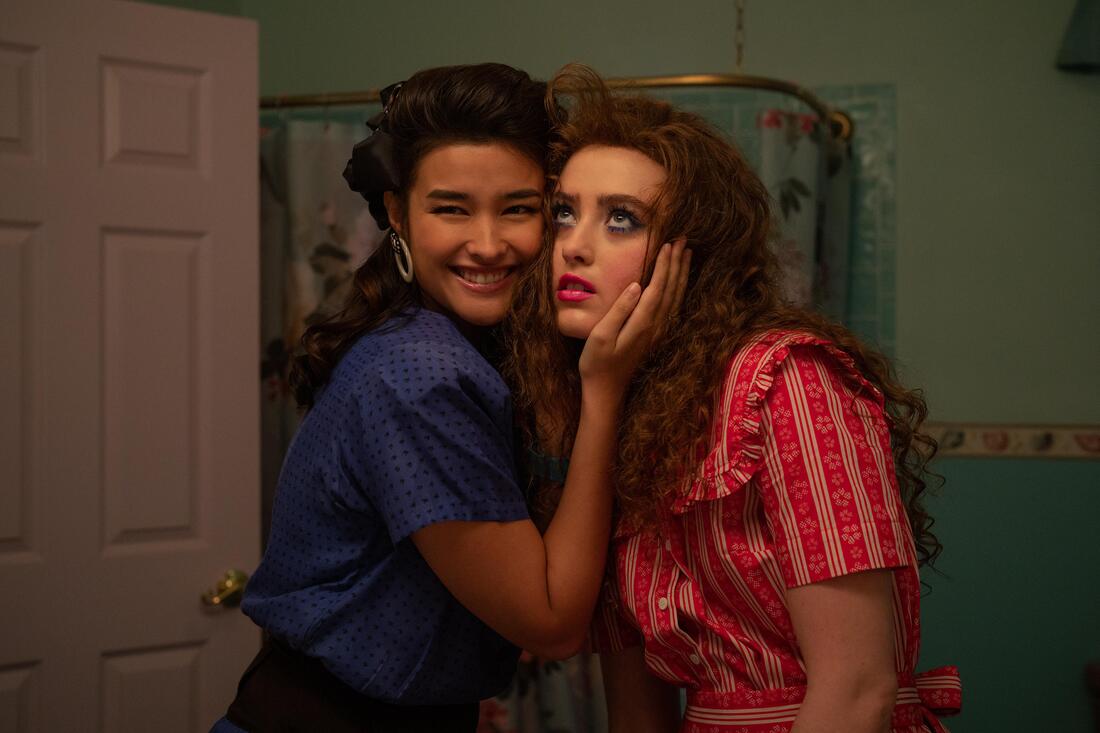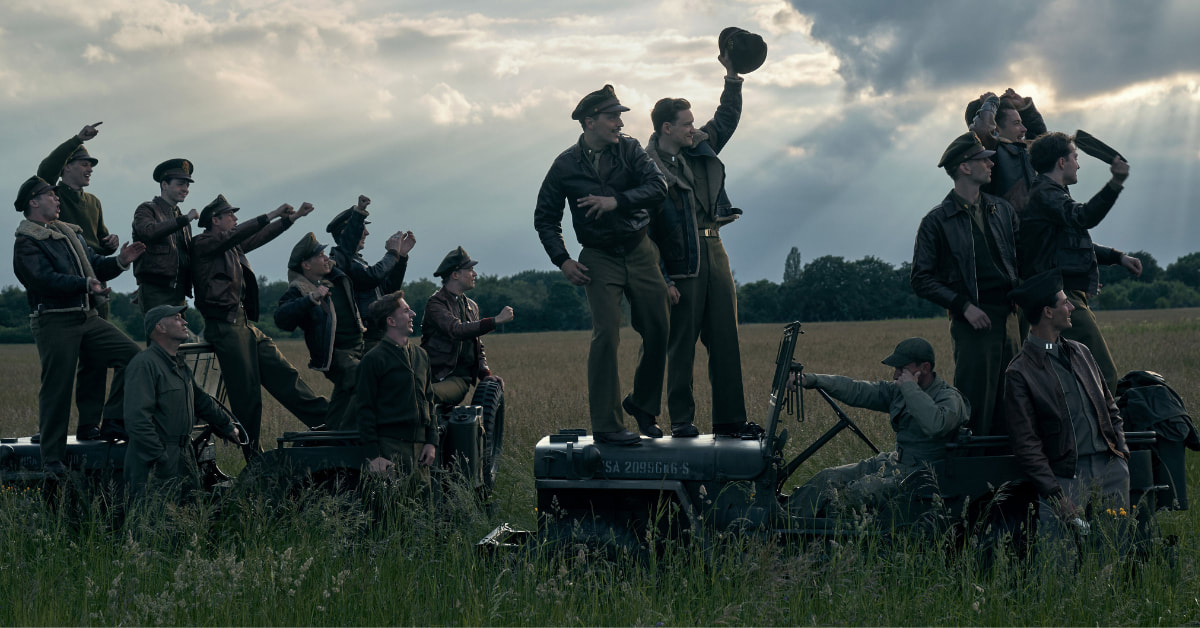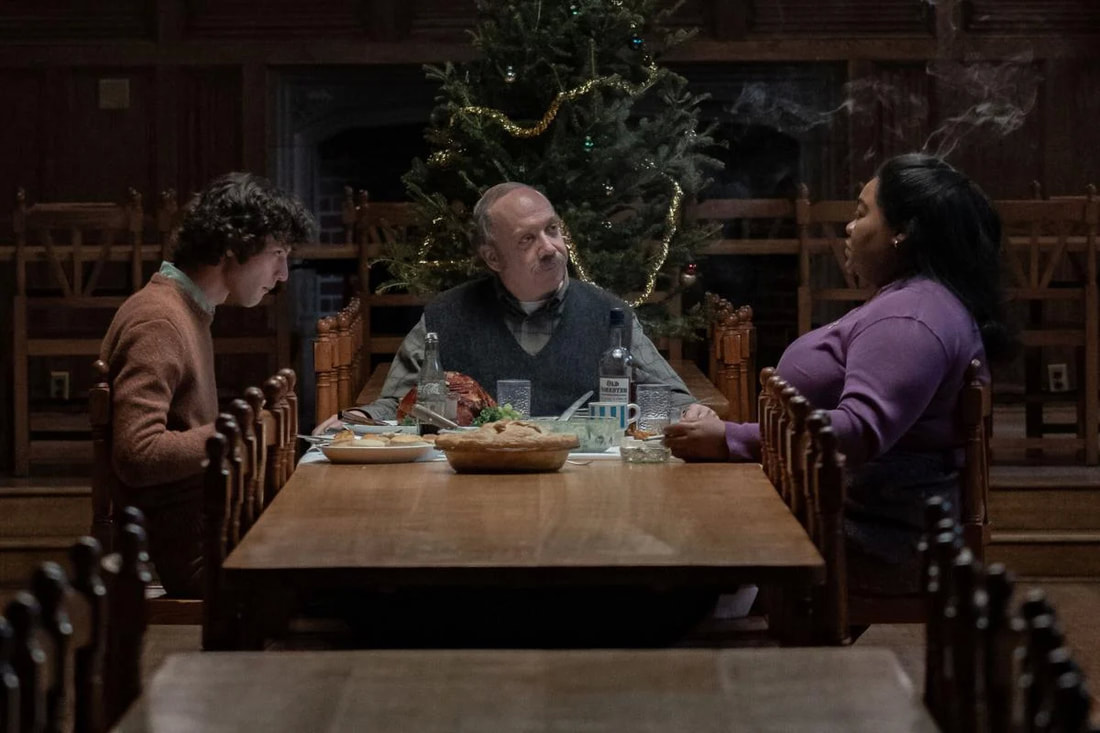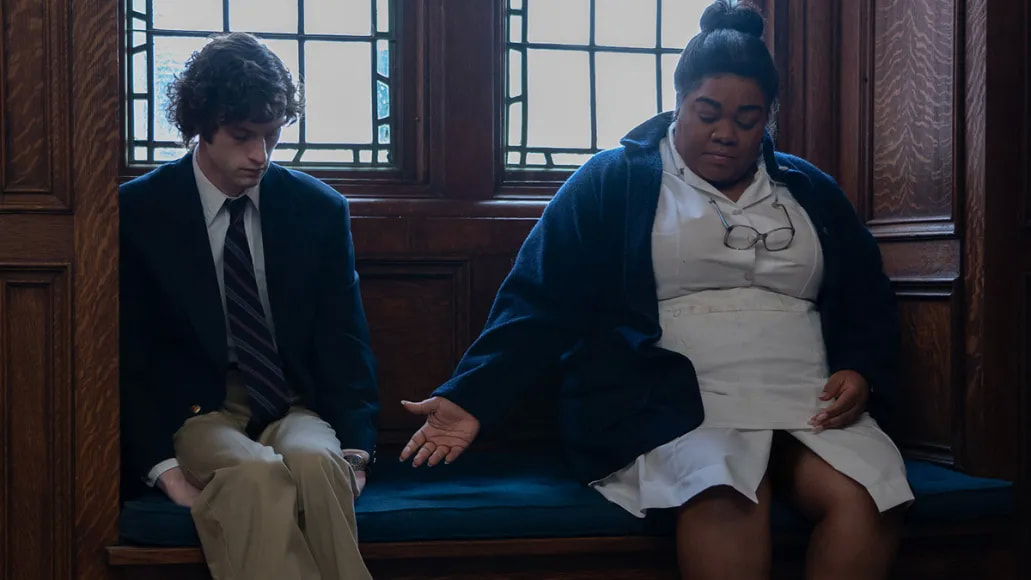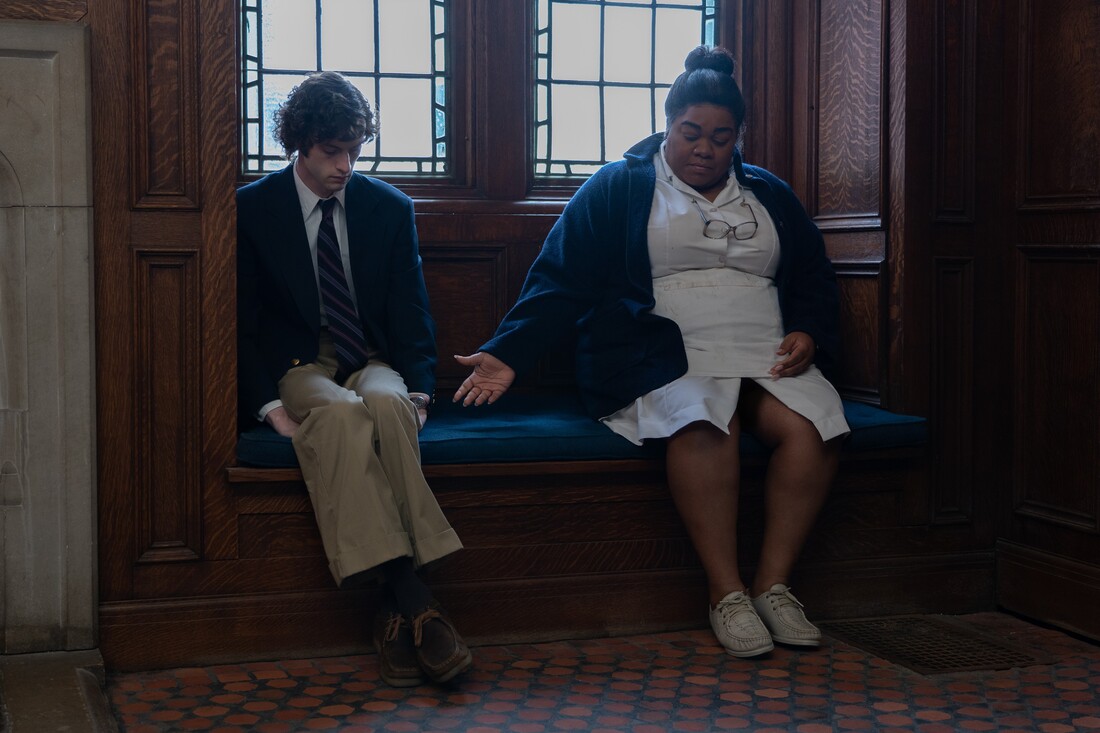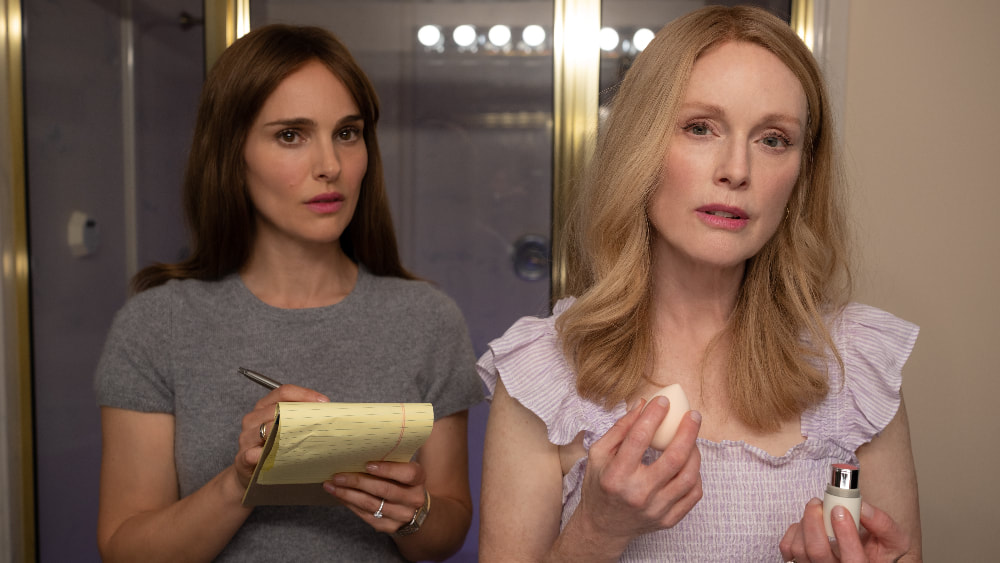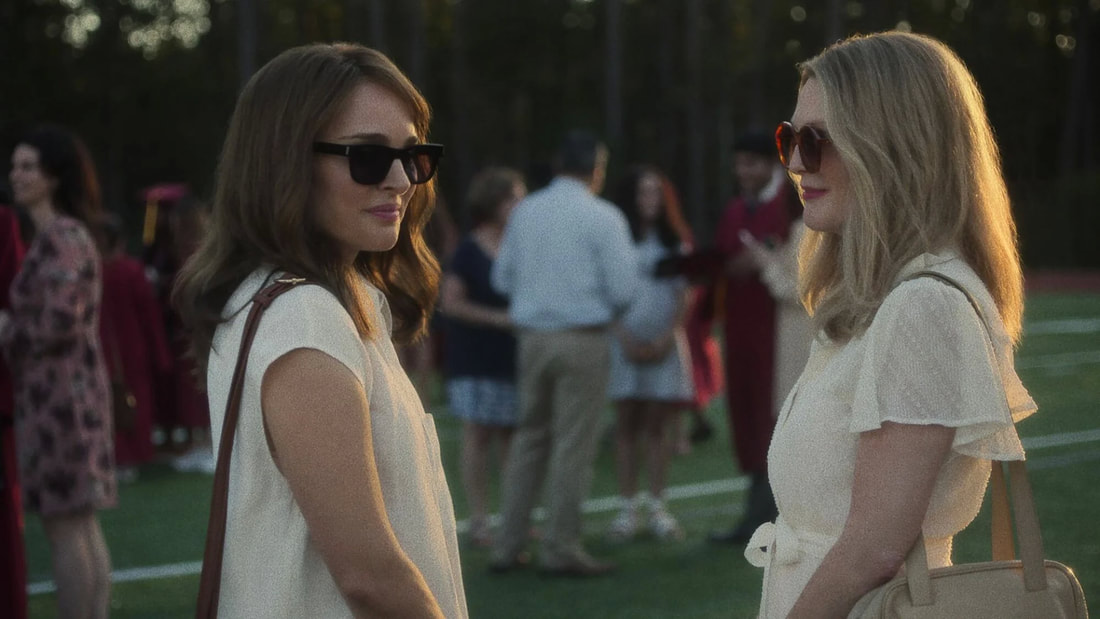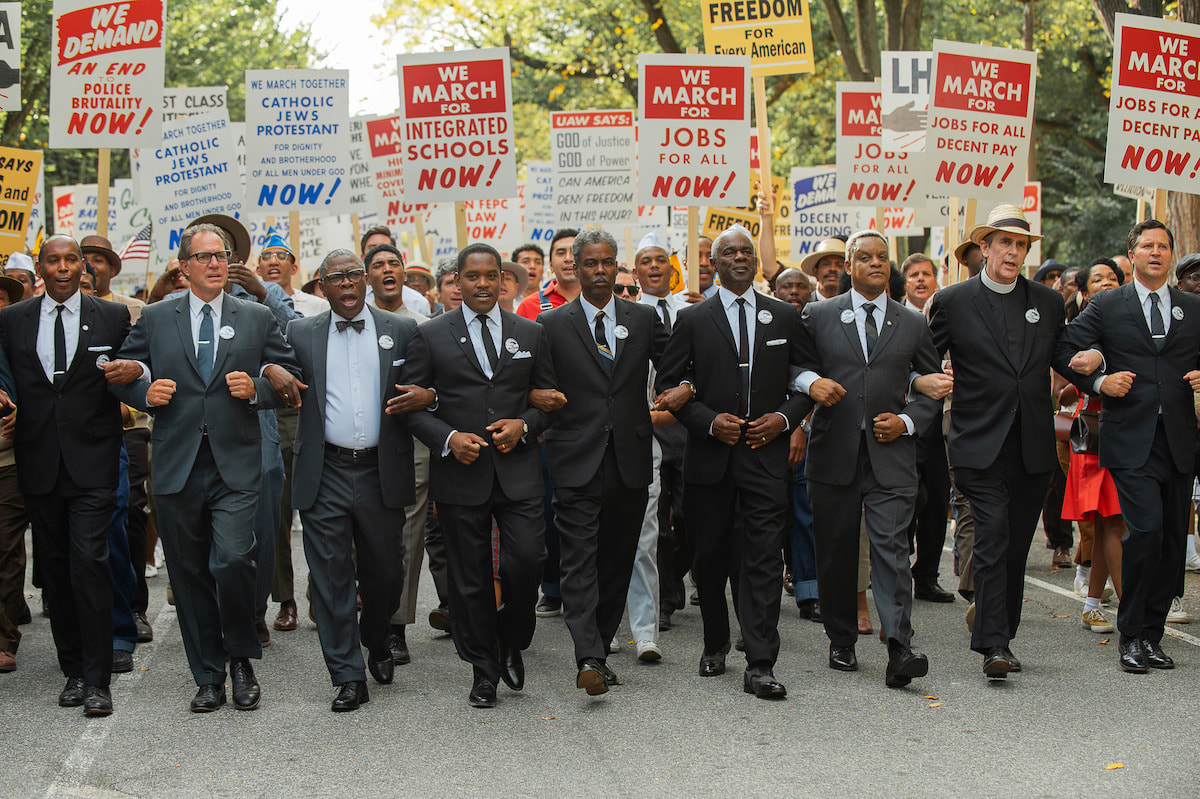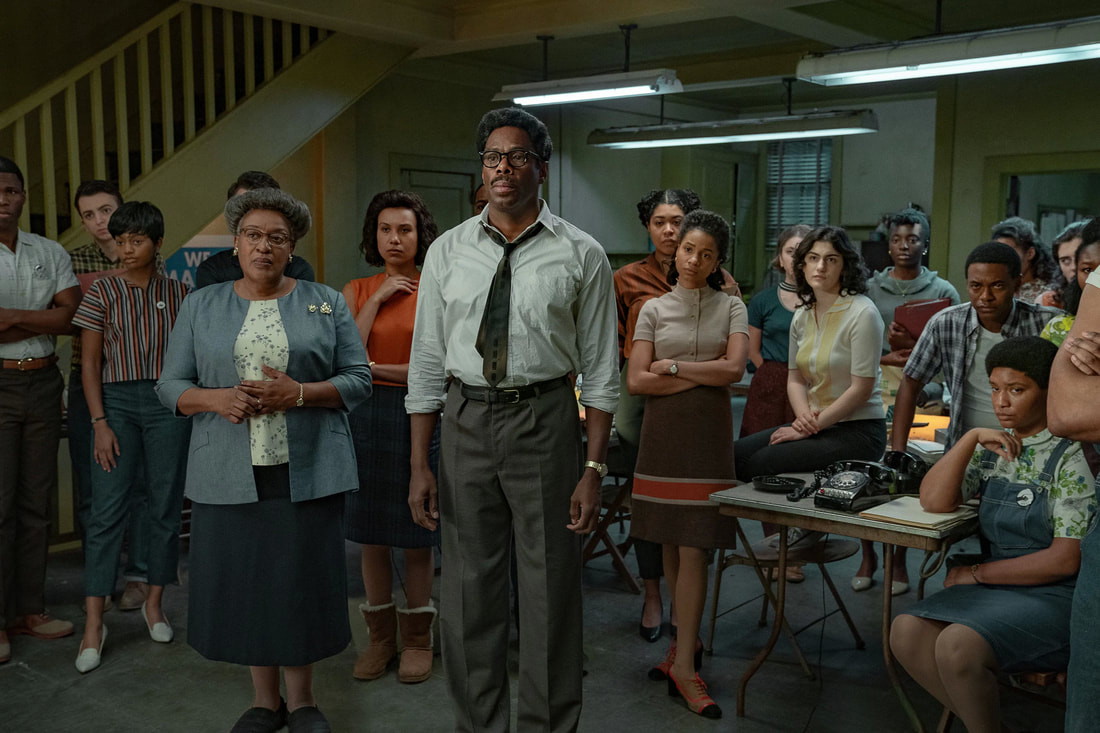|
Review by Tatiana Miranda Based on the best-selling novel of the same name, A Gentleman in Moscow is a unique look at post-Revolutionary Russia. The new Showtime limited series stars Ewan McGregor as Count Alexander Rostov, who is put under house arrest for life in the Metropol Hotel. While the story is primarily fiction, it is based on the real long-time tradition of house arrest in Russia and portrays the realities of life as a noble in Russia following the Bolshevik revolution, where most were either killed or lived a life of obscurity. The series begins in 1917, when Alexander is arrested and sentenced to life imprisonment in the Metropol Hotel. It showcases his life within the hotel until Stalin's death. Through flashbacks, Alexander's pre-revolution life is revealed as he grapples with the loss of his sister and his old friendship with revolutionary Mishka Mindich. While in the hotel, he grows close to nine-year-old Nina Kulikova, actress Anna Urbanova, and various hotel employees. Although the story can be intensely dark, dealing with subjects such as Alexander's loneliness and despair while imprisoned and several key character deaths, it is also a heartwarming and hopeful story about found families and keeping hope even during the darkest of times. The series ends around 1953, allowing the audience to see Alexander grow and make a new life within the hotel and examine the developments of communist Russia. Even though the series is only eight episodes long, it packs in a lot during the time period it shows and allows the audience to grow fond of Alexander and those he interacts with in the hotel. Ewan McGregor's performance stands out as he perfectly encapsulates a count who won't let his imprisonment get the best of him; instead, he routinely makes light of the situation and stands up for himself and his peers as best he can. Fehinti Balogun is also exceptional as Mishka, Alexander's old college friend and revolutionary, and his character adds depth to Alexander's past while also providing a different perspective to Alexander's on the benefits of the revolution.
Other performances, such as Mary Elizabeth Winstead's portrayal of Alexander's love interest, Anna Urbanova, are lacking. Beyond her relationship with Alexander, she doesn't seem to have a lot of depth. However, they try to give her the storyline of a fading actress, similar to Margot Robbie's Nellie LaRoy in Babylon. In A Gentleman in Moscow, though, her storyline comes across as an afterthought rather than an intentional way to mirror the evolution of post-revolutionary Russia. While the series attempts to give characters depth through either pre- or post-revolution trauma, it feels surface-level and doesn't always last beyond the episode in which it occurs or is revealed. Overall, although A Gentleman in Moscow is an entertaining series with fascinating characters, it feels like just another limited series that doesn't attempt to break out of the cookie-cutter historical drama mold. A Gentleman in Moscow premiers on Paramount+ on March 31. All eight episodes reviewed. Rating: 2.5/5
0 Comments
Review by Tatiana Miranda Loosely based on the novel Mr. & Mrs. American Pie, Palm Royale is a comedy-drama series set in 1969 that centers on outcast Maxine Simmons as she attempts to climb the Palm Beach social circle. The ten-episode series stars Kristen Wiig in the lead role, Carol Burnett as Maxine's sick, wealthy relative, Allison Janney and Leslie Bibb as local country club socialites, and Laura Dern, Kaia Gerber, and Ricky Martin as Maxine's unexpected friends. With the 1960s time period and Florida beach aesthetics, Palm Royale is a campy mystery comedy that constantly leaves the audience wondering who to root for. While the time period and character names remain from the source material, most of the plotlines differ. The series focuses on self-proclaimed former beauty pageant queen Maxine as she arrives in Palm Beach to care for her husband's wealthy aunt, who suffered from an embolism. Through lies and luck, she attempts to work her way up the local social scene and prepares to host the main event of the season. Secrets are consistent as Maxine attempts to keep her own and unravel those of her friends, enemies, and family. The show's campy mystery aspect is akin to The White Lotus, while its unlikely friendships are reminiscent of Dead to Me, which was co-written by Palm Royale's creator, Abe Sylvia. The main flaw of the series is in what those other two series have: a central mystery. Whether it be a death or a figure pulling all of the strings, Palm Royale focuses more on an amalgamation of reveals rather than one grand whodunnit at the end of the show. Because of this, the series seems to attempt to write itself as it goes along, never quite knowing what will happen to the characters next or what secret will be revealed.
Although the plot is messy and inconsistent, the characters and the star-studded cast that portrays them keep the show from being overwhelmingly disappointing. Of all of the deceptive and flawed characters, none are quite as mischievous as Kristen Wiig's Maxine, even if she doesn't realize exactly what she's doing. Unlike Saltburn's Oliver, who similarly attempts to infiltrate a group of rich people, Maxine is an ultimately kind person who just wants to fit in and have the socialite life she's always dreamed of having. Her character is one of the most compelling, as even as she continues to lie and blackmail others, she is still the underdog of the story that you can't help but feel sorry for. Overall, while Palm Royale leaves you wanting more in terms of the plot, the captivating characters and their relationships keep you coming back for more. One can only hope that more seasons will allow for a more consistent storyline and a return of these entertaining characters. Palm Royale premiers on Apple TV+ on March 20. All ten episodes reviewed. Rating: 3/5 Review by Tatiana Miranda To non-bookish individuals, Apples Never Fall might seem like just another mystery drama series similar to Little Fires Everywhere or Sharp Objects. However, those familiar with the series' source material know it comes from the same author. Like author Liane Moriarty's previous book-to-series adaptations, the upcoming Peacock original series features a stacked ensemble cast, with Sam Neill and Annette Bening in lead roles. They are joined by Jake Lacy, Alison Brie, Essie Randles, and Conor Merrigan Turner, who portray the dysfunctional, tennis-obsessed Delaney family. The series quickly jumps into the story's central conflict, alluding to the matriarch Joy Delaney's disappearance before the audience can even get a sense of the family's history and dynamics. It does try to give backstory through flashbacks, but the time jumps happen too much and too inconsistently throughout the seven-episode series to work as intended, leaving several of the main characters' motives unwarranted and unrealistic family dynamics. A majority of the time jumps are to about half a year before Joy's disappearance when a mysterious woman named Savannah comes into the older couple's life, but there is also a flashback to the children's youth in episode five that feels out of place and unnecessary. While the cast is incredibly star-studded, most of the characters feel like one-dimensional dysfunctional family member tropes. Alison Brie as Amy is the most notable example of this. Her character is meant to be the spiritually-minded disappointment of the family who dropped out of college and is pursuing a career as a life coach. Although the series attempts to give her some depth and reveals how being the family disappointment has affected her, it is a small aspect of the story that doesn't carry a lot of emotional weight. Other characters, such as Jake Lacy's rich womanizer Troy and Annette Bening's overly kind and overlooked Joy, are equally as flat. Even the father, Stan Delaney, who is meant to be complex due to his trauma and suspicious behavior, is ultimately an uninteresting and lackluster portrayal of a typical absent and overcritical patriarch. His character is almost like the poor man's Logan Roy from Succession, with older son Troy as a pseudo-Kendall Roy character as well.
Since the characters are lacking, the mystery aspect of the series takes center stage. The mystery does keep you constantly wondering what happened to Joy and questioning each family member. Yet, the reveal of what truly happened and the aftermath of the revelation feels too silly to be taken seriously for what is supposed to be a dramatic series. Ultimately, when compared to Liane Moriarty's other series adaptations, Apples Never Fall is nowhere near as captivating as Big Little Lies and is more forgettable like Nine Perfect Strangers. Even with a stellar cast, the characters are too uninteresting and the plot is too unoriginal to make the series a worthwhile watch. Apples Never Fall premiers on Peacock on March 14. All seven episodes reviewed. Rating: 2/5 Review by Tatiana Miranda At first glance, Apple TV+'s new series The New Look might seem like a standard historical fashion drama about Christian Dior and Coco Chanel, but the series — and the designers' realities — are much more complicated. Named after Dior's style of fashion in the late 1940s and 50s, the show focuses on famous French designers Coco Chanel and Christian Dior during and following the Nazi occupation of France during WWII. Similar to how Chanel's and Dior's respective fashion styles were deemed opposites of one another, the two figures reacted to the Nazi occupation in varying ways. The series opens as Dior nervously presents his new fashion line at a press conference. Meanwhile, Chanel smears him in an interview and, later in the series, to Nazi officers. From Dior's quiet disposition and structured designs to Chanel's outspokenness and more comfortable fashion style, the characters could not be more unalike. Yet, they both find themselves in the crosshairs of Nazi-occupied France. For years, Chanel's romance with a high-ranking German officer and use of anti-Semitic laws to gain control of her company from Jewish business partners were long hidden. However, due to recently published biographies on the designer, Chanel's unsavory connections to the Nazis have come to light and restarted the discussion of her ethics. Meanwhile, Dior's younger sister, Catherine, was a member of the French resistance who survived a concentration camp. While Dior himself wasn't an active member of the resistance, he worked hard to help his sister and used his experiences to create the "New Look," which became a symbol of hope and change as the war ended. The New Look takes on a lot in terms of characters, subjects, themes, and even talent, as the series features stars like Ben Mendelsohn, Maisie Williams, John Malkovich, Juliette Binoche, and Emily Mortimer. With so much to tackle in a ten-episode series, some things felt sped up or underdeveloped — namely, Catherine Dior's experiences as a French resistance member and concentration camp survivor. Since the series focuses more on her brother, her work in the resistance and experiences in the concentration camp come second. This would be more understandable if the elder Dior were a fascinating lead character, but his shy personality and understated conflicts make him one of the least interesting characters of the series. Moments of triumph, such as the announcement halfway through the series that he would be starting his own fashion house, feel lackluster as there are hardly any emotional ties between the character and the viewer.
On the other hand, Coco Chanel is a complex lead character who just wants what's best for herself and her legacy, even if that means collaborating with the Nazis. Dior is even seen in a similar position, as he is forced to design gowns for a Nazi ball to provide for his family, but the choice doesn't hold the same weight or narrative influence as Chanel's storyline. While The New Look is an eye-opening look at Chanel's involvement with the Nazis, it is ultimately a dull depiction of the effects of WWII on the French fashion industry and its main designers. Even Chanel's feud with Dior, which resulted from her need for relevancy, is downplayed as simple petty remarks. Although the series has a stellar cast and a beautiful soundtrack produced by Jack Antonoff, it is an unremarkable telling of remarkable historical figures. The New Look premiers on Apple TV+ on February 14th. All ten episodes reviewed. Rating: 2/5 Review by Tatiana Miranda Fifteen years after the release of the cult classic film Jennifer's Body, writer-producer Diablo Cody expands on her horror comedy filmography with Lisa Frankenstein. Written by Cody and directed by Zelda Williams, Lisa Frankenstein is a campy horror film set in the 1980s and loosely based on Mary Shelley's infamous monster. Despite it being Williams's feature-length debut, it is a fantastic follow-up to Jennifer's Body that still feels like a wholly unique, standalone film. The film stars Kathryn Newton as Lisa, an eighteen-year-old outcast dealing with an overwhelmingly popular stepsister, absent father, evil stepmother, and the aftereffects of her mother's grim death. Unpopular and misunderstood, Lisa finds solace in goth music, her favorite silent films, and an unnamed Frankenstein's monster-like character played by Cole Sprouse. Newton and Sprouse are also joined by Carla Gugino, Joe Chrest, Henry Eikenberry, and Liza Soberano. While February might seem like a weird time to release a horror-comedy, the film's campy romance between Lisa and the monster makes it the perfect alternative rom-com. Similarly to Cody's work on Juno, Lisa Frankenstein shows the world through a more rose-colored lens. Less dark than Jennifer's Body and unlike other popular dark comedies with more distinct good and bad characters, Lisa Frankenstein doesn't focus on the ethics of murders or regeneration. Instead, character actions are taken at face value. This is not to say that the campy nature of the film makes it unbelievable, but it comes off as more fantastical. Like the plot's supernatural nature, the characters don't subscribe to the ethics and consequences of the real world. While sometimes this can come across as an easy way out of dealing with plot holes, Lisa Frankenstein uses its otherworldliness to create a captivating world full of eccentric characters. Outside of the outlandish plot and characters, Lisa Frankenstein's campiness also comes from its over-the-top '80s-inspired aesthetics and soundtrack. From REO Speedwagon to Wite-Out as nail polish, the film incorporates plenty of trends and music from the '80s in a way that feels more like a caricature of the decade rather than being period-accurate or a parody. The distinctive costumes and incredible soundtrack lend themselves to the film's likely cult classic status.
Even with great performances by Newton, Sprouse, and Soberano as Lisa's stepsister, Taffy, the characters come off as secondary to the plot and aesthetics. Since the film isn't a drama by any means, it makes sense to keep certain characters more rudimentary to focus on the extremity of the plot. Yet, it also makes it harder to have emotional beats between characters that don't have well-developed relationships, such is the case with Lisa and Taffy. Overall, though, Lisa Frankenstein is another wonderful work from Cody that feels unlike anything else. This, paired with stellar performances and captivating visuals, makes the film a fun spin on the usual rom-com genre and a perfect Valentine's date night movie. Lisa Frankenstein hits theaters on February 9. Rating: 4/5 Review by Tatiana Miranda Masters of the Air is the latest captivating miniseries from Apple TV+. Produced by Steven Spielberg and Tom Hanks and based on the book of the same name by Donald L. Miller, the series centers around the 100th Bomb Group of the US Eighth Air Force as they were stationed in East Anglia during WWII. While the show is based on the real-life bomb group — nicknamed the Bloody Hundredth due to its 77% casualty rate — and features fictionalized versions of its members, it never comes across as a history lesson and is instead a riveting look at the realities of war and the technical aspects of the US Air Force. Chock-full of recognizable faces, as well as new names, Masters of the Air utilizes nearly every single character who comes across the screen. Led by Austin Butler as Major Gale Cleven and Callum Turner as Major John Egan, the show also features stellar lead performances from relative newcomers Nate Mann as Major Robert Rosenthal and Anthony Boyle as Major Harry Crosby. More established stars such as Barry Keoghan, Raff Law, Bel Powley, Isabel May, and Fionn O'Shea also star, although in more minor roles. Still, each performance is a standout, and even with such a large cast, the characters never feel overwhelming. While it would have been easy for each episode to fall into a routine of focusing on a specific mission that the Bloody Hundredth faced, it instead weaves different storylines and locations of members to give the series a more cinematic feel. From German imprisonment to celebrations on base, Masters of the Air doesn't focus solely on the fighting aspects of the war or the Air Force. Instead, it paints a multidimensional picture of the 100th Bomb Group and their sacrifices. One of the more disappointing aspects of the series is its portrayal of the Tuskegee Airmen. Coming in at episode eight of the nine-episode series, the 332nd Fighter Group is portrayed as the supporters of the 100th rather than having their own established storyline and characters. Although the series focuses mainly on the 100th, the attempt to show any of the 332nd, comprising African American military pilots, comes across as a last-minute addition to the storyline. Actors such as Branden Cook and Ncuti Gatwa don't get nearly as much screen time as their white costars, and even when their storyline is interwoven with those of Butler and Turner's characters, they are seen more as background characters.
Overall, Masters of the Air is a fantastically shot and well-acted series, although it does have its few flaws. Still, it's a fascinating look into WWII that doesn't watch as solely a war series but instead features moving portrayals of grief, romance, friendship, and sacrifice in the US Air Force. Masters of the Air premieres on Apple TV+ on January 26. All nine episodes reviewed. Rating: 4/5 Review by Tatiana Miranda Movies and shows set in the 1970s have existed since, well, the 1970s. Yet, even with the acclaim of a few recent '70s-based pieces of media, such as Licorice Pizza and Daisy Jones and the Six, they have the same aesthetic representation of the era as a tacky Party City costume. This is not the case with Alexander Payne's film The Holdovers. Set in 1970, the movie centers around a group of students residing at the prestigious boarding school Barton Academy over winter break. Chaperoned by the widely hated history teacher Paul Hunham and cook Mary, there is eventually only one student remaining, the outspoken but compassionate Angus Tully. Paul, played by Paul Giamatti, is the kind of role one would expect the late Robin Williams to portray. This is probably a result of the movie's similar setting and plot to beloved films such as Good Will Hunting and Dead Poets Society. Much like the younger leads of those films, Dominic Sessa's character, Angus Tully, is rebellious and perhaps a bit emotionally stunted due to his family issues. Because of this, The Holdovers seems a bit cliche at first, yet the film's adherence to '70s aesthetics and film techniques makes it clear that its simplicity is meant to be an ode to the emotional dramas of the past — not a replica. While The Holdovers is pretty standard in terms of its characters and emotional drivers, its commitment to embodying a movie both filmed and set in the 1970s makes it a masterclass in effective world-building. From the period-accurate costumes to the grainy visuals, which are thanks to it being shot on 35mm, there is not a moment where the film comes off as cheesy and unrealistic — even with the soundtrack featuring songs from modern artists such as Damien Jurado and Khruangbin. The Holdovers feels like a classic emotional drama in so many ways, namely its comedy. The characters' deadpan deliveries and outlandish actions inject personality into an otherwise dismal film. Still, the funny interactions don't diminish the seriousness of some of the subject matter. In something that tackles subjects such as racism, classism, and mental health, humor is much needed to balance out the dramatic aspects.
Out of the three lead performances, Sessa is perhaps the standout as he breaks into film with his performance in The Holdovers. He perfectly portrays a wisecracking, tenderhearted teen dealing with the disappointment of being stranded over the holiday break. This is not to say his character isn't sometimes contradictory, as it's sometimes unclear whether he wants to excel at Barton or get kicked out. Still, his emotional outbursts cause the other characters to reevaluate their own emotions and grow as the film progresses. Just in time for the holiday season, The Holdovers is an entertaining slice of nostalgia that is bound to be a favorite among Thanksgiving Day moviegoers. Even more than that, though, it's a testament to the creativity of Alexander Payne, and that sometimes simplicity is key. The Holdovers releases in theaters on October 27. Rating: 5/5 Review by Tatiana Miranda When it comes to queer cinema, stories tend to focus on the youthful side of LGBTQ+ identities. Often, they feature a sense of coming-of-age and scenes of coming out to friends and family. While All of Us Strangers doesn't *not* do those things, it does them in a re-inventive way that says more about the cultural understandings of queerness, rather than one personal identity. Based on the film's promotional images and beloved leading men, All of Us Strangers might seem like your average sad gay romance. Although the movie is both sad and gay (How could it star Paul Mescal and not be a little depressing?), the romance aspect is probably the least moving part of the film. Even with Mescal and Andrew Scott's undeniable on-screen chemistry, their characters' love story plays second fiddle to the main plot at hand. Loosely based on the 1987 Japanese novel Strangers, the movie centers around 40-something-year-old screenwriter Adam (Scott), as he routinely revisits his childhood home in an attempt to reconnect with his long-deceased parents. Although he starts this routine as a way to gain inspiration for his writing, it slowly turns into a mode of therapy, as he communes with the imagined versions of his mother and father. Even though All of Us Strangers is probably one of the more hopeful queer films to come out of late, it is still intensely emotional and full of a sense of loneliness that is both personal to the characters and also a reflection of the realities of being gay without a community to share that revelation with. As Adam grows closer to Mescal's character, Harry, he reveals his identity to his parents, imagining how they might react to him coming out.
The differences in Harry's and Adam's individual gay identities are also incredibly significant. Due to his age and personal trauma, Adam is more reserved when it comes to romance. Meanwhile, Harry is perhaps overly flirtatious. For Harry, his outward sexuality comes easy to him, a sign of the times changing and his ability to have properly come out to his family, even if they no longer talk to him. Although All of Us Strangers is touching as a romance with incredible performances by both Scott and Mescal, as well as Claire Foy and Jamie Bell as Adam's parents, its emotional aspects come from its unorthodox and refreshing look at navigating sexuality and coming out past your youth. Director Andrew Haigh's well-thought-out adaptation, paired with editor Jonathan Alberts's masterful blending of the "past" and present, makes it an unforgettable film. All of Us Strangers screened at the 2023 edition of NewFest, which runs October 12-24. Rating: 4/5 Review by Tatiana Miranda Todd Haynes is best known for his campy (Velvet Goldmine and Superstar: The Karen Carpenter Story) stories about forbidden love (Carol and Far From Heaven), and in his newest flick, May December, both themes are present. Or are they? Probably his most experimental film of recent years, May December teeters the line between serious drama and parody. The movie follows actress Elizabeth Berry as she visits married couple Gracie Atherton-Yoo and Joe Yoo in preparation for a movie role about their life. As is eventually revealed, in the '90s, 36-year-old Gracie had an affair with 13-year-old Joe. Even after making national headlines and Gracie having Joe's children while in prison, the two got married and attempted to move past their infamous history. That is until Elizabeth arrives and causes the family to rethink the facts of their relationship. Compared to comedy films about similar subjects — such as Adam Sandler's That's My Boy -- May December understands the seriousness of the situation and instead relies on the absurdity of the characters and their actions as a form of comedy. The first note of this is when, after a mundane statement from Gracie about not having enough hot dogs for their cookout, a dramatic piano score by Marcelo Zarvos interjects. This continues throughout the film, as several inane moments are treated as if they're shocking revelations in a true crime drama. It takes a while for viewers to determine whether this absurd directorial decision is meant to be taken seriously or not. Long after the credits roll, some are still left wondering whether May December was meant to be a dramatic story about the inhumanity behind true crime biopics or a satire thriller piece similar to the Netflix series The Woman in the House Across the Street from the Girl in the Window.
More than a critique of Gracie's extramarital and extremely illegal relationship with Joe, May December highlights the ridiculousness of how Elizabeth treats the couple for the sake of her career. Similarly to how the main characters never quite condemn Gracie's — or even Elizabeth's — actions, Haynes never gives a decisive answer as to how the audience should feel about the movie as a whole, and what it has to say about the epidemic of true crime biopics and intense method acting. Due to the film's upcoming release on Netflix, it's likely it will reach an audience affronted by how unseriously it takes itself and its sometimes confusing tonal shifts. While May December is unlikely to become a beloved classic like Carol for this reason, it provides an interesting and experimental critique of the modern Hollywood phenomena of true crime biopics. May December screened at the 2023 edition of NewFest, which runs October 12-24. Rating: 3/5 Review by Tatiana Miranda With hits like Oppenheimer and Tetris and highly-anticipated movies like Priscilla and Maestro, 2023 is a big year for biopics. The Netflix film Rustin is another addition to that list. Produced by Barack and Michelle Obama's production company, Higher Ground Productions, Rustin tells the story of Bayard Rustin, a gay Black civil rights activist who helped organize the 1963 March on Washington. When most think of the March on Washington, they immediately remember Martin Luther King's famous "I Have a Dream" speech. While Rustin doesn't discredit King's involvement in the creation and outcome of the march, it instead focuses on the development of the march, which was spearheaded by Rustin. Even more so, though, the film focuses on Rustin's identity as a semi-openly gay man in the '60s. Throughout the movie, he faces prejudice and criticism from those of his own race and others regarding his sexuality. Even though the movie follows his work in the civil rights movement, the conflicts of Rustin's sexuality are frequent. Because of this, Rustin is a queer liberation film, as well as a Black liberation one. Co-writers Julian Breece (known for the series When They See Us about the Central Park 5) and Dustin Lance Black (who wrote the film Milk) ensure Rustin's gayness is just as prevalent as his Blackness. While it is a movie with lots of personality and filled with humor and heartfelt moments, Rustin does have its flaws — namely the performances. Colman Domingo leads after having starred in mainly supporting roles in shows and movies such as Euphoria and If Beale Street Could Talk. Unfortunately, in what should be an Oscar-worthy performance, his portrayal of Rustin comes across as a caricature of the influential figure.
Other performances, such as Chris Rock as NAACP leader Roy Wilkins and Jeffrey Wright as U.S. representative Adam Clayton Powell, feel equally stagelike. Some of this might be a result of director George C. Wolfe's prominent work in theater. Yet, other roles, like Audra McDonald as activist Ella Baker and Aml Ameen as Martin Luther King, feel more realistic and less cartoonish. Even with its shortcomings, Rustin is a powerful and moving film that gives voice to an otherwise forgotten hero. It is also an unflinching portrayal of the historical and modern problems that face non-white members of the LGBTQIA+ community. In a time when more and more civil rights leaders are being erased from textbooks, Rustin is a reminder of the instrumental work done by a then-controversial figure who deserves to be remembered. Rustin screened at the 2023 edition of NewFest, which runs October 12-24. Rating: 4/5 |
Archives
April 2024
Authors
All
|
|
|
disappointment media
Dedicated to unique and diverse perspectives on cinema! |

